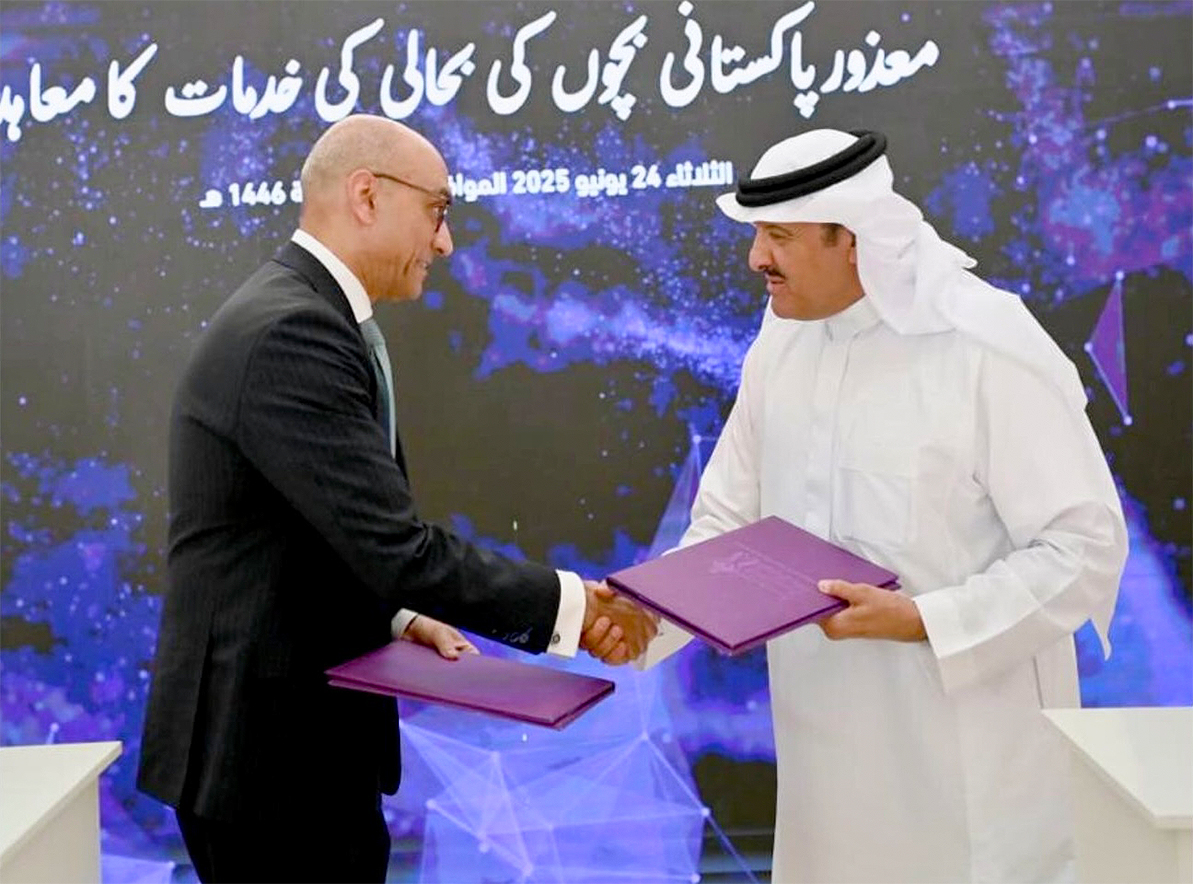ISLAMABAD: Bushra Khan, the wife of Pakistan’s incarcerated former Prime Minister Imran Khan, was removed against her will from an anti-government protest she was leading in Islamabad and her whereabouts were unknown and not being revealed to family members, her sister said during an interview with a local media network on Wednesday night.
Bushra and close Khan aide Ali Amin Gandapur had been leading a protest march that began on Sunday and ended on Tuesday night after a sweeping raid by authorities on the sit-in in Islamabad’s D-Chowk, located near the country’s parliament building and other government installations. They had been demanding the release of Khan, who has been in prison since August 2023.
As police and paramilitary troops cracked down on the demonstration to disperse the crowd, Bushra and Gandapur vanished from the venue. While Gandapur addressed the media the following day from the PTI’s stronghold province of Khyber Pakhtunkhwa (KP), Bushra has not yet made a public appearance.
“For several hours, we had no idea what was happening,” her sister, Maryam Riaz Wattoo, told local ARY TV during an interview. “We were only being told that she had gone to KP. But I couldn’t believe that she would leave for KP so easily because I knew she was determined to stay there until it was do or die.”
Wattoo said she tried to contact her sister but no one was willing to put her through.
“I got to talk to her by my own means very late in the day [Wednesday],” she said. “And I asked her to tell me clearly, ‘Did you leave with your own will?’ She said, ‘No. I never wanted to leave. I was ready to die there’.”
The sister said Bushra had been taken by the KP administration, with her location concealed even from family members.
“Bushra didn’t even know about the press conference,” she said, referring to a planned media interaction Bushra was meant to hold with Gandapur, the chief minister of KP, according to media reports. “She has been taken to an unknown location.”
Wattoo said that while she was not accusing Gandapur of ill intent, the lack of communication with family was concerning.
“I find it strange that even if they are moving her for security reasons, why is her family not informed about it,” she asked.
Sayed Zulfikar Bukhari, a senior PTI leader and close aide of ex-premier Khan, dismissed Maryam Riaz Wattoo’s claims as “not true,” telling reporters they should be ignored.
Pakistan’s Geo TV also aired CCTV footage purportedly showing Bibi in Islamabad, where she is seen stepping out of one vehicle and boarding another before leaving the federal capital.
Born Bushra Riaz Watto, she changed her name to Khan after her marriage. Her husband and followers commonly refer to her as Bushra Bibi or Bushra Begum, titles that denote respect in the Urdu language.
Bushra entered the capital Islamabad this week with thousands of PTI party supporters who breached heavy security force barricades. Not far from the country’s parliament, she addressed supporters from atop a truck near the historic square of D-Chowk where they vowed to hold a sit-in until Khan was freed.
“You all need to promise that until Khan is among us, you won’t leave D-Chowk,” said Bushra in the first time she had addressed a public rally.
Underscoring her growing active role in PTI’s strategy, she insisted on holding the protest at D-Chowk. However, after a massive midnight raid by security forces following days of deadly clashes, the protesters dispersed and party officials said Bushra was widely reported to have escaped to KP.
Bushra, who is in her late 40s, has kept a low profile since marrying Imran Khan in a secret 2018 ceremony. It was his third marriage and her second. They were charged with not completing the waiting period mandated by Islam after her previous marriage, although a court this year overturned the conviction.
She was released from prison in October after nine months for a case involving the illegal sale of state gifts.
Bushra was previously married for around 30 years. She hails from a family of landowners in Punjab, but little is known about her early life.
Bushra is a devotee of Fariduddin Masud Ganjshakar, or Baba Farid, a revered Muslim mystic and Sufi saint whose shrine is located in her ex-husband’s hometown of Pakpattan in Punjab.
She usually appears in public with her face covered by a veil, dressed in a flowing plain black or white abaya, or robe.
Pakistanis who admire Bushra’s devotion to the saint call her a spiritual leader while Khan’s opponents accuse her of practicing sorcery, a claim his aides have repeatedly denied.
With inputs from Reuters



















